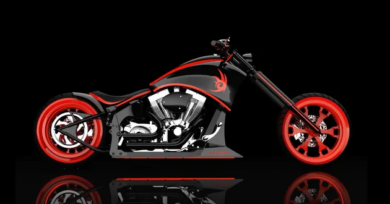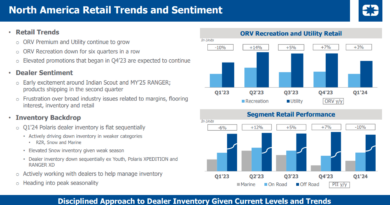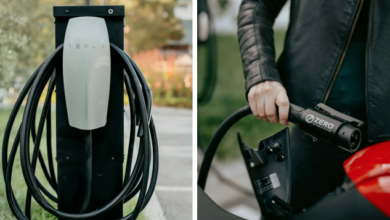Judge issues ruling in case pitting dealership vs. H-D
News release
In a ruling that could have broad ramifications for manufacturers and auto dealers across the nation, a Hawaii federal judge has designated a state motor vehicle act as the controlling statute in a contract dispute between the motorcycle maker Harley-Davidson and its longtime distributor in the nation’s 50th state.
U.S. District Judge Helen Gillmor rejected a defense request to transfer the case, brought by nationally renowned franchise/dealership attorney Robert Zarco on behalf of Cycle City Ltd., from Hawaii to Harley-Davidson’s home state of Wisconsin.
“This is a big deal,” Zarco said. “Removing or transferring the case to Milwaukee, Wisconsin, its own backyard, could give Harley-Davidson an unfair advantage of fighting a case originating and factually developed in Hawaii thus requiring Cycle City to battle its manufacturer 3,000 miles away from home, rather than in a court that is familiar with Hawaii’s local economy, transportation system and particular public interests.”
In a complaint filed in March of this year in the U.S. District Court for the District of Hawaii, Cycle City alleges that Harley-Davidson violated the Hawaii Motor Vehicle Licensing Act by refusing to renew a long-standing distributorship agreement, “for the exclusive distribution, sale and service of Harley-Davidson motorcycles, parts and accessories in Hawaii.”
Over the life of the relationship, which started in 1966, Cycle City says in the complaint that it “exponentially increased” the brand awareness, goodwill, popularity and reputation of Harley-Davidson in Hawaii by spending millions of dollars and other resources such as the time and energy of its employees.
But the relationship unraveled in December of 2013, when Harley-Davidson declared after a series of negotiations that it would not renew the deal under its original terms. According to the complaint, Cycle City alleges that since Harley-Davidson decided to end the deal, the company has continued to do business with Cycle City under onerous financial and highly restrictive terms. Among other things, the company alleges, Harley-Davidson wholesaled parts and other supplies to the distributor at substantially inflated prices, raising them without advance notice.
After Cycle City sued, Harley-Davidson sought to remove the case to its hometown of Milwaukee, Wisconsin.
Zarco, of Zarco, Einhorn, Salkowski & Brito P.A., of Miami, Florida, said that manufacturers typically seek to remove lawsuits filed against them to the cities and states where they are headquartered. In fact, the agreement between Harley-Davidson and Cycle City contained such a provision.
But the agreement also contained a critical addition: “Any applicable motor vehicle statute governing the relationship between [Harley-Davidson and Cycle City] shall be controlling in the event of a conflict between any provision of this agreement and the state statute.”
Wrote the judge: “This means that Hawaii’s applicable state motor vehicle statute — the Hawaii Motor Vehicle Industry Licensing Act — shall be controlling in the event of a conflict between it and any provision of the Distributorship Agreement.”
“This is the first time the motor vehicle statute has been tested in Hawaii in terms of its vitality,” Zarco said of the ruling. “It is clearly being recognized by the federal court system in Hawaii.”
He said the precedent-setting ruling will be recognized by courts within the U.S. 9th Circuit, which encompasses Hawaii, Alaska, California, Oregon, Washington, Arizona, Nevada, Idaho, Montana and the U.S. territories in the Pacific.
The judge also noted that there are strong public policy reasons for keeping the case in Hawaii.
“Cycle City has operated as Harley-Davidson’s exclusive distributor in Hawaii for 48 years and the facts giving rise to the lawsuit took place in Hawaii,” she wrote. “The HMVILA expresses a strong public policy in favor of resolving these types of disputes and the crux of Cycle City’s complaint is for violation of that law.”
The judge added: “Cycle City’s allegations support its claim that Harley-Davidson has not acted in a fair and equitable manner. Cycle City has thus sufficiently alleged that Harley-Davidson failed to renew the Distributorship Agreement in good faith.”
“In sum, Cycle City has alleged sufficient facts to state a claim for violation of the HMVILA, in particular, Haw. Rev. Stat. Sections 437-28 (a) (21) (A) and (C), based on non-renewal of the Distributorship Agreement.”
Robert Zarco is the founding partner of the Miami-based boutique law firm of Zarco Einhorn Salkowski & Brito, P.A. He is a trial and corporate lawyer who practices in the areas of Business, Commercial, Franchise, Hospitality, Dealership and Real Estate law. The firm represents clients nationally and internationally in complex disputes and transactions. Mr. Zarco is recognized as an expert in franchise law by courts and various legislatures and actively lobbies federal and state lawmakers, representing the franchisees’ interests and promoting “Fair Franchising” legislation.
Mr. Zarco, Alex Brito and Robert Salkowski are counsel for Cycle City Ltd.









well, I guess HD’s success which has made their dealer groups’s profitability the envy of the ‘rest’ of us now bites them – nice to be able to afford top quality attorneys – “ET tu Brutus”.
Perhaps this should happen more often. Most OEM are on a different playing field and never understand how much resourses a Dealership uses to promote their products.